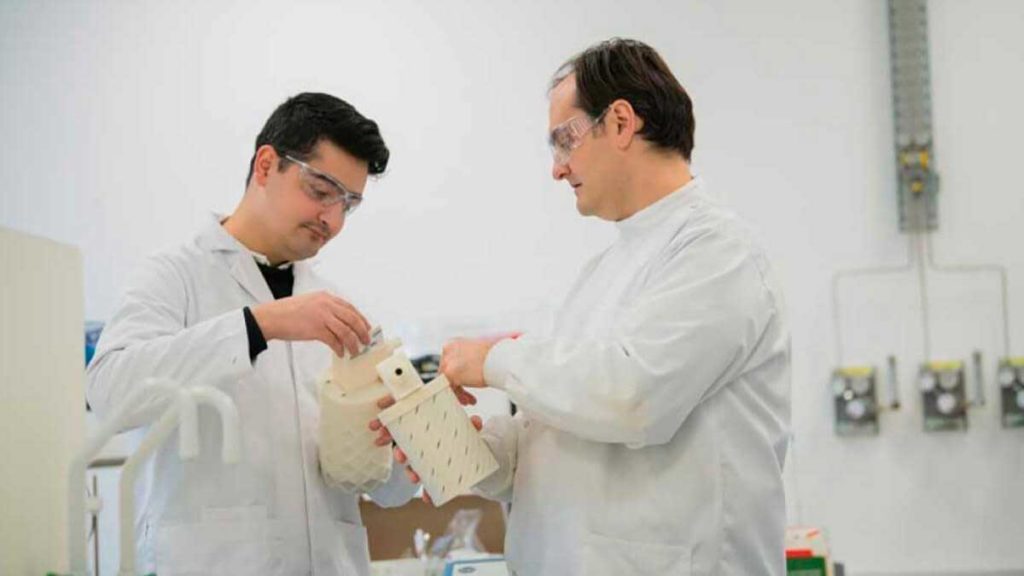 Image Credit: Northumbria University
Image Credit: Northumbria University Covid-19 diagnosis is currently done by taking nasal and oral swabs, and even swabs from within the lungs to ensure accuracy and reliability of testing. Recently however, a new device has been manufactured that only requires the patient to breathe into a device, which has shown similar results to samples taken surgically.
A team at Northumbria University led by associate professor Dr Sterghios Moschos are responsible for the research and development of the device. Despite breathing devices not being new to the scientific community, older techniques may have caused errors, inaccuracy or contamination.
The new test involves a patient breathing into the device which collects biomarkers from the lungs in an easy and non-invasive way. This is unlike the current Covid-19 diagnostic tests which are known to cause discomfort.
Biomarkers are genetic indicators – DNA, RNA, proteins, lipids and more – contained in our breath from which infectious diseases can be detected. These markers can then be used to gather valuable diagnostic information that can help healthcare workers make life-saving decisions, and shed light on the state of the patient’s condition.
Dr Moschos makes clear that it is vital to develop a Covid-19 diagnostic test that is non-invasive, cost effective, and quick. Such a development, he says, can expand to healthcare overall and not just Covid-19.
The technologies to reduce the amount of bloodletting involved in Covid-19 diagnostic tests are available but not standardized outside a lab setting where it is needed most. However, with the new Covid-19 strands being discovered, Dr. Moschos expresses that temperature testing at airports may not be enough.